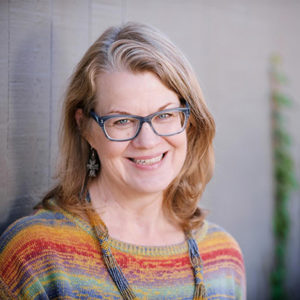Challenges and Opportunities for Women Church Planters (Part 1)
Posted 02/22/2017 in Church Planting
“Our pastor is a woman.”
“Oh, so she’s co-pastor with her husband?”
“No, she’s our senior pastor.”
“Oh, so she’s not married?”
“No, she is married. Her husband is not in the ministry; he has a different career.”
“So she doesn’t have any children?”
“Yes, she has two children.”
So went an actual conversation between one of my congregants and a friend. Welcome to the world of women pastors and church planters—and welcome to the assumptions people make about them!
In 2010, I started one of the first two satellite churches for a large nondenominational church in Seattle. Not only did it feel very lonely, it is, in fact, very rare. I have yet to encounter a female lead pastor in an analogous situation. When I searched for data to substantiate my experience, it was also scant and difficult to find. However, a couple of stats illustrate my point: About 20% of lead pastors are women in established liberal-moderate churches, and about 3% of lead pastors are women in conservative, evangelical, or fundamentalist churches. In addition, for every church planted by a mainline denomination, there are nine church plants by an evangelical group. So if you’re a woman church planter, you’re amongst a very, very small group of pastors.

Furthermore, you have a unique task. Women church planters are continually trailblazing on three levels. First, on a personal level, every step, stage, and decision is a first, requiring utter dependence upon the Holy Spirit’s guidance and instruction. Some church-planting organizations welcome women planters into their training programs, but others remain closed. Some women planters just respond in obedience to God’s call and “build the plane while it’s in the air!” Even when equipped with a rudimentary roadmap, there is still uncharted territory, as each congregation and context is unique.
Second, women church planters are continually leading a whole congregation into uncharted territory. Planting is very different than succeeding a pastor in an established church. There are no former pastors, former staff members, former ministry and mission programs, worship format, holiday traditions, etc. If the plant is not a house church, most likely corporate worship happens in a rented facility where everything has to be moved in and out each Sunday. It’s a huge task just to build a ministry infrastructure and orchestrate mechanics. The whole enterprise is a new experience for most of the congregants, and particularly challenging to those who crave an element of predictability.
A woman planter will frequently be the first woman pastor attenders have experienced. One of my congregants later confessed she was initially reluctant, even suspicious, about receiving teaching and leadership from a woman, and hadn’t expected to stay. But she did stay and became one of my most enthusiastic supporters. Another young woman once shared with me in tears that she had been taught it was wrong for women to be pastors, but after experiencing my leadership and our community, she had been “set free”! Parents have told me how grateful they are that I normalized women pastors for their children, especially their daughters (“I had never experienced a woman pastor until I came here, but it’s so wonderful a woman pastor has been normal to our children from birth”). It is most gratifying, though not fast or easy, to convert people to female pastoral leadership in time.
Third, beyond the planter’s congregation, women pastors may be met with disapproval and/or dismissal by worship visitors, by other pastors in local pastors’ groups, and at ministry conferences. I’ve had visitors walk out during my sermon and later email to tell me they loved everything about their experience except that a woman was preaching (pointing out it was defiant of “clear biblical instruction”). In a local pastors’ group, I’ve experienced other male pastors assuming my male worship director was the pastor and I was his assistant. Nationwide, even amongst churches and denominations affirming of women pastors, women pastors are older, more highly educated, paid less, and are called by or sent to smaller congregations than their male counterparts.
There is still women-in-pastoral-leadership trailblazing to be done in every realm. The female church planter must continue moving forward filled with a full tank of love to cover a multitude of micro-aggressions. Despite the effort it takes to joyfully sustain such arduous trailblazing, women church planters are growing in number by the day, because women are obediently answering God’s call and discovering that planting a church is “the hardest job they’ll ever love.” I once heard Palestinian professor and Christian leader Salim Munayer say, “women are going to be the change agents of the 21st century.” Though presently a minority, women church planters are mission-critical change agents in the coming of God’s kingdom
In Part 2 of my blog post, I’ll share how women planters can flourish.

Shonnie Scott (shonniescott@comcast.net) has an MA from Fuller (’87) and DMin from George Fox Seminary (’10). She has been in vocational ministry since 1986 and spent the last six years as a lead campus pastor, launching the first satellite campus of Bethany Community Church in Seattle. Out of that experience, God is calling her to a new ministry—to serve as a pastor, mentor, and spiritual director to women pastors and church planters everywhere. Her passion is to ensure that the upcoming generation of women pastors and planters flourish in their callings.

